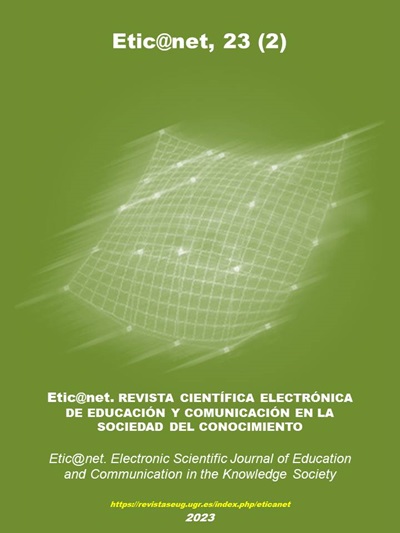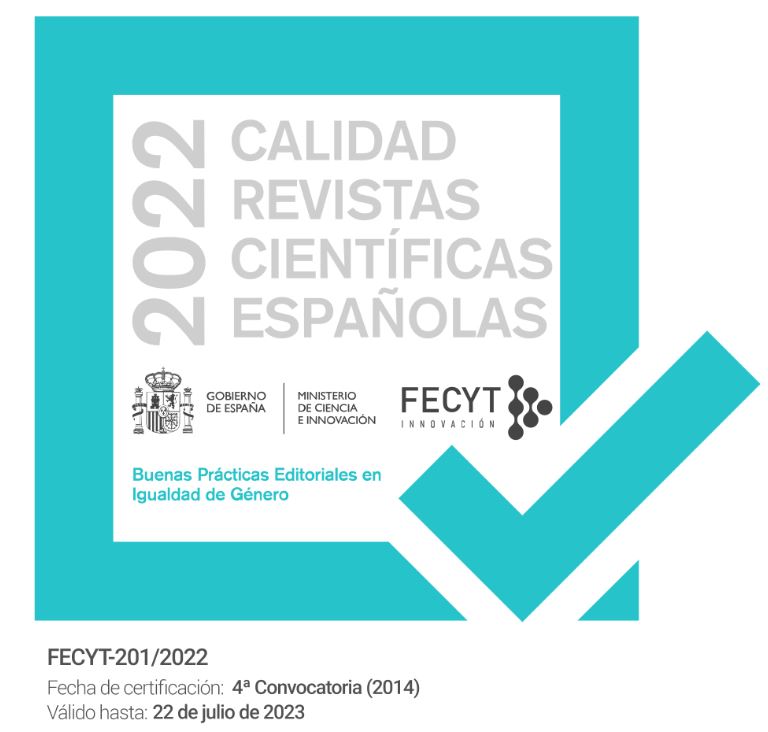Theoretical study on competencies needed to understand the use of Artificial Intelligence in Education
DOI:
https://doi.org/10.30827/eticanet.v23i2.28498Keywords:
Artificial Intelligence, AI Literacy, ChatGPT, Mathematics EducationAbstract
This article presents an exploratory and interpretative study built from studies of articles published by researchers and documents, curricular proposals of governments and scientific societies on literacy in Artificial Intelligence (AI). In several countries the introduction of certain subjects of this area of knowledge are introduced in schools. In this direction, in Portugal and Brazil, the introduction of Computational Thinking is one of the strategies to prepare citizens for a technological world in the context of AI. This work aims to identify competencies necessary for the understanding of AI, in particular, ChatGPT, and that could be developed in Basic School. The research was developed through studies of the bibliographic survey type, that is, documentary studies that are carried out on any type of written documentation. The collection of information was done through records of readings of the documentation. A reflection on the transdisciplinary role of Mathematics Education that is constantly innovating, through theories and methodologies that support it, collaborated in this aspect by evidencing its relationship with AI and allowing the development of the necessary skills for its understanding.
Downloads
References
Arrieta, A. B. et al. (2020) Explainable Artificial Intelligence (XAI): Concepts, taxonomies, opportunities and challenges toward responsible AI. Information Fusion. v. 58, pp. 82–115.
Balacheff, N. (2004) The researcher epistemology: a deadlock for educational research on proof. Les Cahiers du Laboratoire Leibniz, Grenoble, n. 109.
Balacheff, N. (2007) La transposition informatique, un nouveau problème pour la didactique in Artigues M. et alii (eds) Actes du colloque “Vingt ans de didactique des mathématiques en France”, 15-17 juin 1993, Paris, France, pp. 364–370.
Bardin, L. (1977) Análise de Conteúdo. Lisboa: Edições 70.
Brasil. Ministério da Educação. (2017), Base Nacional Comum Curricular. Educação é a base, Brasília, Ministério da Educação.
Brasil, Ministério da Ciência, Tecnologia e Inovações. (2021) Estratégia Brasileira de Inteligência Artificial. Ministério da Ciência, Tecnologia e Inovações.
Ferreira, J. J.; Monteiro, M. S. (2020) What Are People Doing About XAI User Experience? A Survey on AI Explainability Research and Practice. A. Marcus and E. Rosenzweig (Eds.): HCII 2020, LNCS 12201, pp. 56–73.
Fiorentini, D.; Lorenzato, S. (2009) Investigação em educação matemática: percursos teóricos e metodológicos. 3ª Edição. Campinas: Autores Associados.
Gadanidis, G. (2016) Artificial intelligence, computational thinking, and mathematics education. ICICTE 2016 Proceedings, pp. 83–90.
Hwang, G.-J., & Tu, Y.-F. (2021). Roles and Research Trends of Artificial Intelligence in Mathematics Education: A Bibliometric Mapping Analysis and Systematic Review. Mathematics, 9(6), 584. MDPI AG.
Kaufman, D. (2019) A inteligência artificial irá suplantar a inteligência humana? Coleção interrogações. Estação das Letras e Cores Editoras. Barueri, São Paulo.
Kimball, R. (1973) Self-optimizing computer-assisted tutoring: theory and practice. Technical Report 206. Psychology and Education Series. Stanford: Stanford University.
Long, D.; Magerko, B. (2020) What is AI Literacy? Competencies and Design Considerations. In Proceedings of the 2020 CHI conference on human factors in computing systems (pp. 1–16). ACM.
Luckin, R.; Holmes, W.; Forcier, L.; Griffiths, M. (2016) Intelligence Unleashed: an argument for AI in Education. London: Pearson.
Oliveira, E.; Ens, R. T.; Andrade, D. B. S. F.; Mussis, C. R. (2003) Análise de Conteúdo e Pesquisa na Área da Educação. Revista Diálogo Educacional, v. 4, n. 9, pp. 1-17.
Papert, S. (1980) Mindstorms - Children, Computers and Powerful Ideas. New York: Basic Books, Inc.
Richard, P. R., Vélez, M. P., & van Vaerenbergh, S. (Eds.) (2022). Mathematics education in the age of artificial intelligence. How artificial intelligence can serve the mathematical human learning. Cham: Springer International Publisher.
UNESCO (2019) Educación 2030. Consenso de Beijing sobre Educação e Inteligência Artificial - Ciência e Cultura. Paris. França: UNESCO Publishing.
UNESCO (2021) Al and education, Guidance for policy-makers. Paris. França: UNESCO Publishing.
UNESCO (2022) Currículos de IA para a Educação Básica: um mapeamento de currículo de IA aprovados pelos governos. Paris. França: UNESCO Publishing.
Downloads
Published
Issue
Section
License
The authors who publish in this journal agree to the following terms: The authors retain the copyright and grant the journal the right to be the first publication of the work as well as licensed under a Creative Commons Attribution License that allows others to share the work with an acknowledgment of the authorship of the work and the initial publication in this magazine. Authors are allowed and encouraged to disseminate their work electronically (for example, in institutional repositories or on their own website) before and during the submission process, as it may lead to productive exchanges as well as further citation. Earliest and greatest of published works (See The Effect of Open Access).













